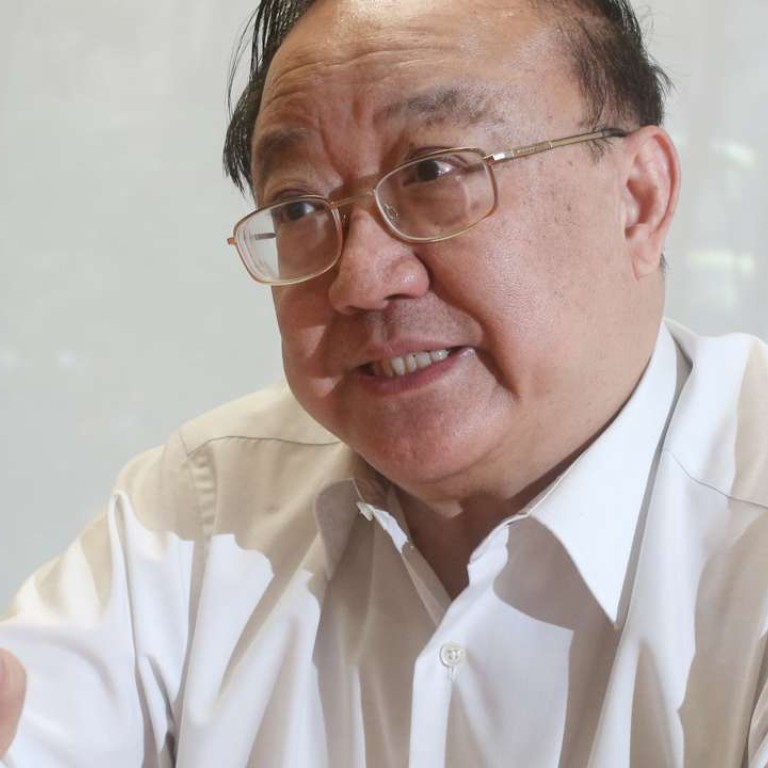
Distant dream: Hong Kong Medical Council chairman pessimistic over further reform
Professor Joseph Lau was speaking after lawmakers blocked bill to add lay members to Medical Council in a bid to speed up slow complaints mechanism
Reforming Hong Kong’s scandal-embroiled medical watchdog now seems a distant dream despite the health minister’s pledge to restart the process, the head of the watchdog said after the failure of a reform bill to pass through the Legislative Council earlier this month.
Medical Council chairman Professor Joseph Lau Wan-yee, who spoke for the first time since the passage of the bill was blocked on July 15, said he believed there was no winner in the bitter battle.
“It is now a situation with four losers: the government, the Medical Council, the public and the medical sector,” he told the South China Morning Post.
“If the mild reform this time faced such great opposition, I can’t see why there will be any more success [in the future on other reform proposals].”
Lau, a well-respected surgeon and scholar at the Chinese University, also admitted he was in a difficult situation and had come under immense pressure since he headed the council in 2012, as he faced criticism from both doctors and patients.
Lau believed the failure of the bill stemmed from social mistrust towards the government. It had now left the medical sector divided and created a huge rift between doctors and the public, he said.
“The whole incident reflects the lack of confidence in the government [by opponents] ... and its inability to make any progress,” Lau said.
The Medical Council, a statutory body that licences and disciplines doctors, has long been criticised for its lengthy procedures in handling patients’ complaints and its tendency to protect its own when doctors are accused of malpractice or misconduct.
In order to restore public confidence and ease its workload, the watchdog raised a reform proposal for the approval of the Food and Health Bureau in 1999.

This year, the government proposed to appoint four additional lay members to the council, bringing the number of such members up to eight and expanding the council from 28 to 32 people. That was supposed to help cut the waiting time for a hearing, which requires the presence of at least one lay member, from 58 to 30 months.
But doctors opposed to the bill complained about a lack of public consultation over the proposal and feared it was an underhand move by the government to exert greater control over the council.
The bill failed to make it to a final vote in Legco amid strong opposition from the medical representative and some pan-democrat lawmakers, who adopted stalling tactics until the last day of the current term.
Lau, who supported the government bill, said he was “heartbroken” and repeatedly expressed his frustration over the prospect of a long-delayed reform. The body now faces a backlog of around 900 complaints.
Secretary for Food and Health Dr Ko Wing-man spoke about bringing forward another, more radical reform proposal.
One proposal would be to take away the power of the watchdog to discipline doctors by setting up a new independent system led by judges or other non-medical professionals to handle complaints against doctors.
Ko suggested forming a three-party platform involving representatives from doctors’ unions, patients’ rights groups and lawmakers, to discuss the issue, with details yet to be worked out.

But Lau, while acknowledging the determination of the administration to kick-start the process, saw a gloomy future for any proposal. With the current government term ending in just under a year – on June 30, 2017 – the prospect of passing a new bill is dim.
“How much extra work does the government have to do? And even with the extra effort, the popularity of the government might worsen,” Lau said as he noted that previous governments did not start a revamp earlier. “I don’t believe there will be a proposal without any controversy.”
Lau proposed a middle way for change by encouraging medical mediation to resolve conflicts between doctors and patients without going through a lengthy legal process.
He believed it would facilitate the handling of complaints relating to health care.
But he expected it would take at least five to 10 years to formalise such a system, which could involve legislation and the training of additional mediators.

